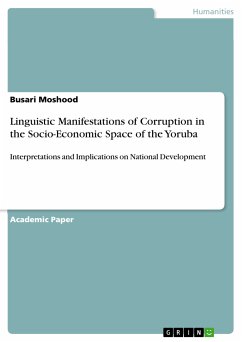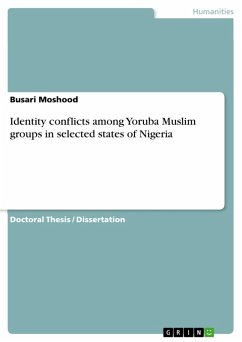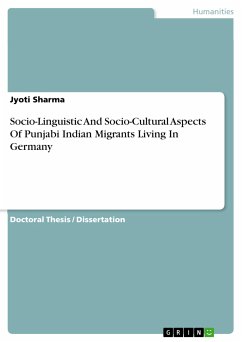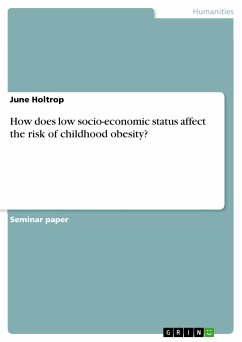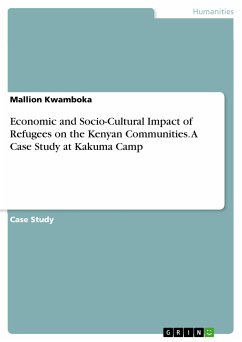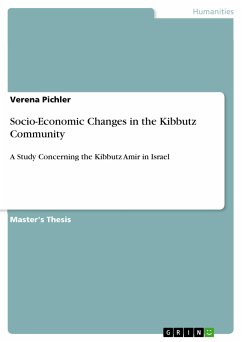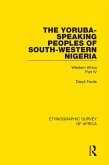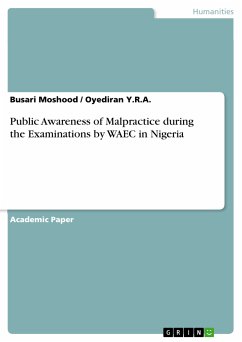Academic Paper from the year 2022 in the subject Sociology - Individual, Groups, Society, grade: 10.0, , course: ARABIC AND ISLAMIC STUDIES, language: English, abstract: Corruption is a global phenomenon that has established itself as a cankerworm in the socio-economic sphere of the modern society. Inordinate quest for worldly materials and the urge to becoming rich and wealthy by all means give rise to various social ills and evils which can be said to have formed types and categories of corruption. Much has been conceptualised and philosophised about the word corruption without critically looking at the seemingly cultural approval and encouragement of corrupt practices in the modern social system, especially of the Yoruba. Therefore, this paper examined some Yoruba expressions which seem to have tacitly made inferences to corruption as if it is a culturally approved and legalised practice. Such linguistic and semantic inferences which portray the preference for wealth and riches with little or no respect for dignity of labour and the virtue of hard work and industriousness by the Yoruba were espoused. This was done using Linguist Cultural Theory of Corruption (LCTC) which was specifically designed for the interpretation of a score of expressions of the Yoruba examined in this paper. By this theory, the unconscious role played in the enthronement of corruption, by the use of language in various cultures was established, using the rich Yoruba linguistic heritage as reference point. This was argued to have strongly aided the fast spread of corruption and its resultant effects on national development. The paper concluded with a proposal of using the same linguistic framework to engender a re-awakening of dead moral values in our society and to ensure sustainable national development.
Dieser Download kann aus rechtlichen Gründen nur mit Rechnungsadresse in A, B, BG, CY, CZ, D, DK, EW, E, FIN, F, GR, HR, H, IRL, I, LT, L, LR, M, NL, PL, P, R, S, SLO, SK ausgeliefert werden.

